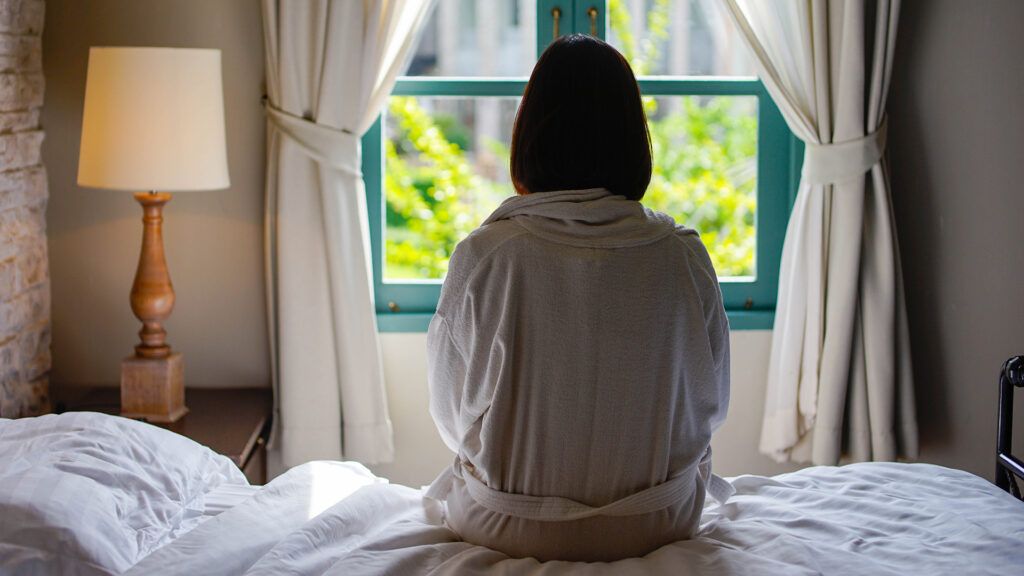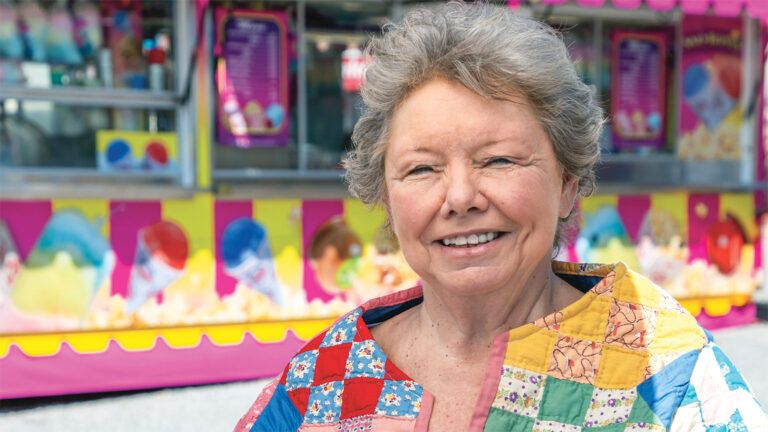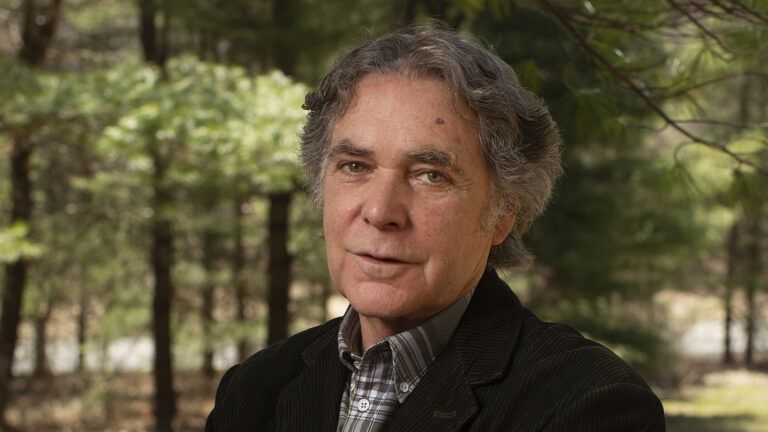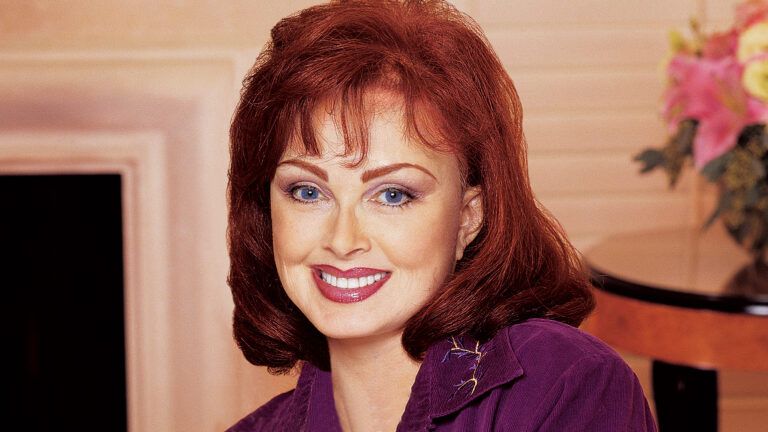It was a chill November day on the golf course, and the wind was whipping. I flipped my jacket collar up and bounced from foot to foot, trying to warm up. I couldn’t feel myself bounce, though. It was the strangest thing: My big toes had been numb for a couple of hours now. “Chelsea, it’s your putt,” my golf partner said, bringing my attention back to my ball nestled on the eighteenth green.
“Okay, thanks,” I mumbled. My mind was still fixed on what was wrong with my toes. It’s probably just the cold weather, Chels. Or maybe those new tap shoes for the school musical. I’d been in tons of plays over the years, and not once had a new pair of shoes made my feet numb. Pinched, maybe, but nothing like now. It isn’t really that cold, Chels; it’s just windy. Plus, I was fine the other day when I was pulling weeds in the garden, and…
The inner dialogue stopped thanks to a sharp pat on my back. “Way to sink that putt,” my friend said. “You won!”
Had I really just putted? I didn’t remember taking the club back or following through on my stroke. I guess you’re a pretty good golfer if you can drain the winning putt without being aware of it. Maybe it was just growing pains. I was, after all, only 14.
At home that night my big toes still tingled. I told my folks. Mom called my pediatrician the next day and told him what was going on. “Don’t worry,” he said. “It doesn’t sound serious.”
But we did worry. The numbing sensation spread to the rest of my toes. Mom made an appointment for me to see my doctor. He ran me through all sorts of tests, but couldn’t find anything wrong. “You probably pinched a nerve,” he said. “Just don’t overdo things.”
Well, that was probably good advice. Along with my golf and the school musical, I was also playing Mary in our church’s Christmas pageant. Just to be safe, my doctor referred me to a neurologist. More tests. The neurologist couldn’t find anything wrong, either.
On December 3, things took a turn for the worse. My phys. ed. teacher had us do a bunch of different running exercises. I’d always been a fast runner, always at the front of the pack. That day, though, I trailed behind everyone. I almost got lapped!
My teacher thought something might be wrong, and called my parents. Mom came to pick me up right away. She told me later that, as I walked to the car, it looked like I was walking with big flippers on my feet.
Our church’s Christmas pageant was that very night. Mom wanted me to stay home, but I knew I couldn’t, no matter how hard it was to walk. I asked God to give me the strength to get through the show.
That night the guy playing Joseph asked, “Are you really going to be able to do this, Chels?”
“Sure! I’m fine. Really,” I said. I put on my happy face, but my insides felt like scrambled eggs, which was better than my feet; I couldn’t feel them at all.
“I’ll be right by your side the whole time,” he said. And he was. I was terrified, though. I sweated so much that my church family could tell something was seriously wrong with me. They’d seen me perform before; I’d never been nervous in front of people.
Over Christmas break, I had to get a walker—I couldn’t stand on my own. I got severe tremors in my hands and arms. Sometimes at dinner I couldn’t hold on to my fork. It would fall from my hand and clatter onto the table. I’d feel like an elderly person in a nursing home who couldn’t feed herself. And still the doctors couldn’t tell me what was wrong. They were baffled.
I went back to school with my walker. “What happened to you?” everyone asked the first day. I tried not to sound too serious, but my closest friends sensed how bad off I really was. Then, in the hallway, the walker slid and I fell right on my rear. Someone had to help me up. That was it for school.
Within a month I was in a wheelchair, completely numb up to my knees now. I don’t know how many medical tests I had. Disease after disease and disorder after disorder were ruled out. Still, no diagnosis. “You might never walk again,” one of the doctors told me.
No more running. No more golf. No more working in the garden. No more performing on stage. The Music Man, Oklahoma, Annie—I’d played the lead in all of those shows. Now it looked like I would never do that again.
It seemed like my life was over. That’s hard for anyone to face, but for a teenager, it seems impossible.
The doctors ordered a spinal tap. It hurt so bad, but it did give them an answer. I had something called Chronic Inflammatory Demyelinating Polyneuropathy (CIDP), which is a variant of Guillain-Barré syndrome. It’s an extremely rare neurological disorder. No one knows what causes it. Most of the people with it, like me, experience peripheral nerve damage and progressive paralysis.
Treatment includes corticosteroids, which may be prescribed alone or in combination with immunosuppressant drugs; plasmapheresis (plasma exchange); and intravenous immunoglobulin (IVIg) therapy. Then there’s physical therapy on top of that. The options seemed frightening. But not as frightening as the option of doing nothing.
My parents and I decided on IVIg treatment. It worked almost right away. A couple of days after my first dose, I was able to get out of the wheelchair and use my walker again. Then came physical therapy with Kim—three days in her office and the rest of the week at home. She put me through some intense workouts: weight lifting, stretching my muscles with a big elastic band, tummy crunches, leg lifts.
Kim pushed me at her office and I pushed myself at home. Every day, for hours, I’d sweat my way through those exercises. If you ever want to dance again…I’d tell myself, and get right back to it. I thought I was coming along nicely.
But one day Kim squatted in front of me, put her hands on my knees and looked me in the eye for a long moment. “I know how hard you’ve been working,” she said. “And I know how desperately you want to play golf and dance again. But…” she hesitated.
“What?”
“For some reason we’re just not seeing the results we should be seeing by now.” She kept talking, but I didn’t hear her. Mom told me later what Kim had said. My dosage hadn’t been high enough to stop my nerves from deteriorating. All that work for nothing! I was only getting worse.
I was scheduled for another round of IVIg treatment. At least I was out of that wheelchair, I told myself, not wanting to think about the day when I’d have to be in it again. God, please help. I don’t want to spend the rest of my life this way. Maybe it’s what you want for some reason. If so, okay. I know you are beside me.
On Mother’s Day I headed out to the garden. I hadn’t been there in so long. I missed it. The few flowers I’d planted earlier in the year were droopy. I dug in the dirt pulling weeds. What’s the point? I got up slowly, using my cane to balance. That’s when I heard it—a voice, clear and distinct. The words seemed to come out of nowhere: “Drop the cane. Drop it and run.”
Lord, is that you? I wondered. My heart said yes. Yes, it was. He was there, right beside me. I let the cane drop to the earth. I put one foot forward, then the other, slowly picking up speed. And before I knew it, six months of slowness and numbness fell away. The wind whipped my face. I felt like an Olympic athlete.
I looked up and there were my parents. They must have come out to check on me. They looked stunned. I raced toward them, my imaginary finish line. I stopped in front of them, laughing. Then I burst into tears and fell to the ground. Mom and Dad knelt down and wrapped their arms around me. They held me, just as God had held me. As he’d always held me.
More than three years have passed since then. I’ve had about 14 more IVIg treatments and I don’t know how much physical therapy. It’s paid off. Not too long ago I went to my neurologist. “Chelsea, you’re in remission,” he said. I already knew that. I had been golfing, singing, dancing and thanking God for helping me get my life back.
Teenagers ask a lot of questions. I’ve asked thousands since I got CID—of doctors, of my parents, of myself. Most of all, of God. His answer is always the same: Trust him. He’ll be by my side. It’s the only answer that matters.






